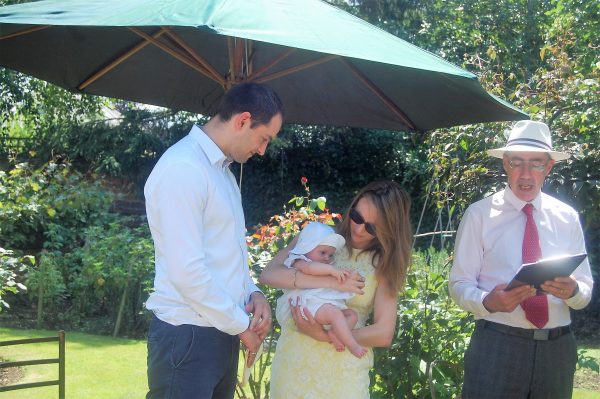
by Michael | Feb 21, 2023 | Blog
It’s always good to celebrate a happy occasion or event! We rather got out of the habit of marking special days because of lockdown. Now we are less timid. And it’s genuinely important to hold such occasions. They are something to look forward to. They help bring people together and encourage a positive mind-set.
If you agree, the next question may be “What shall I celebrate?”.
It sounds obvious, but may repay some restating.
The following is not exhaustive (I’m only choosing three out of many possibilities), but these are the sort of ceremonies I have most often been conducting for people in the decade or so that I have been a celebrant.
Weddings
One lovely way to foster a spirit of joy, unity and support is to celebrate a wedding. The choices are many – not least, the type of ceremony and then the reception. I cover these in other blogs, so will only mention here a couple of areas that you can explore.
The type of ceremony can be religious (eg church), secular (Register Office) or a combination (civil celebrant).
The venue (depending on the type of ceremony you choose) can be in your church, simply in the Register Office, or at a hotel, say, or less conventionally, in the open air.
The reception can be formal or not and can cater for all ranges and types.
Vow Renewals
You may well be approaching an anniversary that ends in -5 or -0. Why not organise an event to mark it?
Or things have changed, and you want to redo and/or proclaim your vows.
The beauty of a Vow renewal is that you have no ties or restrictions. With a wedding, certain words must be uttered (and witnessed); in this case, the wording is up to you (working together with your celebrant). You can celebrate wherever you want – some of the Vow Renewals where I have officiated have ranged from a canal towpath to a tepee to a plush hotel. You can choose a venue that has significance for you. Likewise, the ceremony content can be entirely open to your input.
And then you can mark the event with a reception of your choice.
Naming Ceremonies
I have deliberately not called this section “Baby Namings”. Of course, most people think of babies when it comes to namings, and I have been invited to do a number of these and they have been beautiful, meaningful ceremonies.
However, you can hold naming ceremonies for older people, even adults. The reason could be that someone was never baptised, say, and wants some kind of recognition. You may have adopted a child, so such a ceremony would be appropriate. Or maybe you are blending two families (each with children), so this would be a suitable way to mark the event.
It is possible to mark many other events (even including a separation!), but I hope I have got you thinking how you may be able to celebrate a special occasion. If so, feel free to contact me for more input and help!
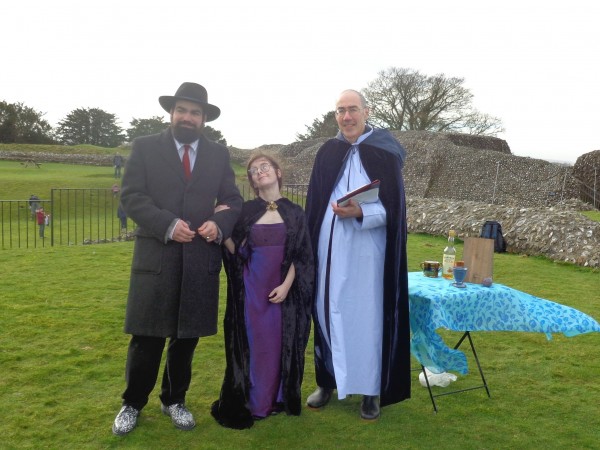
by Michael | Sep 13, 2022 | Blog
As you may be aware, the Law Commission has recently published its recommendations for Weddings. These have gone through to be debated in Parliament. The government will consider the recommendations and prepare legislation, with an interim response produced within six months and the final law within the year.
The Law Society were particularly aiming at two targets with this document. Firstly, to regulate the officiant (rather than the location), and then to agree universal rules for all weddings.
So what is being proposed?
This is only intended to be a resume of the main points, and is subject to my interpretation of the suggestions, so I cannot guarantee accuracy (a fuller report summary can be downloaded here: https://s3-eu-west-2.amazonaws.com/lawcom-prod-storage-11jsxou24uy7q/uploads/2022/07/Weddings-summary-report_.pdf).
Types of Officiant
There will be five types of possible officiant:
- Registration offices
- Anglican clergy (both as at present)
- Nominated officiants (eg religious organisations or Humanists)
- Maritime officiants (conducting civil weddings on cruise ships)
- Independent celebrants
Independent celebrants (the category into which I would fit, of course!) would have to be “fit and proper”, of good character, over the age of 18, with no offences to their name, trained in the legal duties for marriage, and capable of understanding the legal requirements of marriage.
Role
There should be a common set of requirements for all celebrants – mainly, to uphold the dignity and significance of marriage. The legal obligations comprise the three following tasks:
- Ensuring that the couple freely express consent
- Other requirements are fulfilled – eg two witnesses present
- Ensuring that the schedule is signed
Locations
- Any type of location would be possible (not as at present)
- The officiant would have to agree the safety and dignity of the ceremony
Ceremonies
Basically, the same remarks apply to all groups and most weddings.
There would be core requirements (such as expression of consent). Religious content would be allowed in civil weddings, but the ceremony would have to be identifiable as a civil ceremony.
There would be no requirement for open doors.
Conclusion
A lot of consultation and hard thinking has gone into the drafting of these recommendations. I am confident that most will be passed without too much debate. Most of it makes good sense – not least, the underlying implication that the couple can choose the sort of ceremony they want for their big day (which has always been my mantra!).
I am optimistic that the government will be happy to let independent celebrants (not just Humanists, for example) play a legal role in weddings – obviously, under certain restrictions.
I believe that this would be a step forward for the UK, and follow the lead shown by Jersey, as well as Australia, New Zealand and USA.
Watch this space!
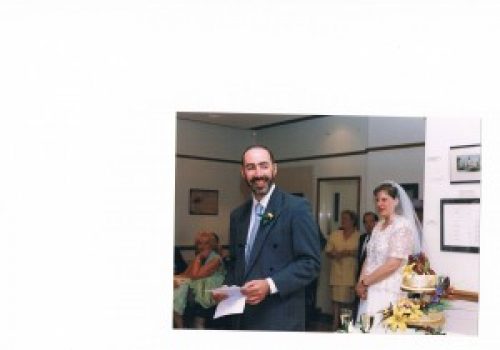
by Michael | Jun 21, 2022 | Blog
People think that, because a celebrant is independent, they will not be emotionally involved in what is going on in front of them.
I consider myself as macho as the next wimp (!), and I have often been able to look at a ceremony objectively, though sympathetically. However, that has not always been the case.
Not unreasonably, it was a struggle for me to conduct the funeral of my aunt without tears, but of course I was emotionally involved, which people understood and accepted.
I found it incredibly hard to keep a dry eye when I conducted the funeral of a suicide victim, whose death had come as a total shock to his widow and young children. The general outpouring of grief was devastating.
In some ways, even worse was the time I had to read out the last message from a young lady to the mourners. “Moving” doesn’t describe how it was for me – let alone, the guests present.
I have had to hold back a tear at some celebratory ceremonies too. When I stand right next to a couple, and see the looks of unreserved love they are directing to each other, then that is a privilege and delight. If they cry, then it is hard not to follow suit!
In some cases, the couple has had to overcome huge adversity; in other cases, their stories are more mundane, but their true love no less evident and enjoyable.
I well remember my own wedding some 23 years ago. I was 45 and had given up hope of ever forming a meaningful attachment, let alone, marrying. In 1997, I met the lady who would revolutionise my life.
Isobel had been through an abusive marriage and had not had things easy. She needed the security and love that I would offer her.
Our guests were clearly so happy that we were getting together! You could feel the love, as you entered the building. It really was the happiest day of my life (hopefully, of Isobel’s too!). I couldn’t stop grinning like an idiot!
I think I managed to keep a dry eye, though!
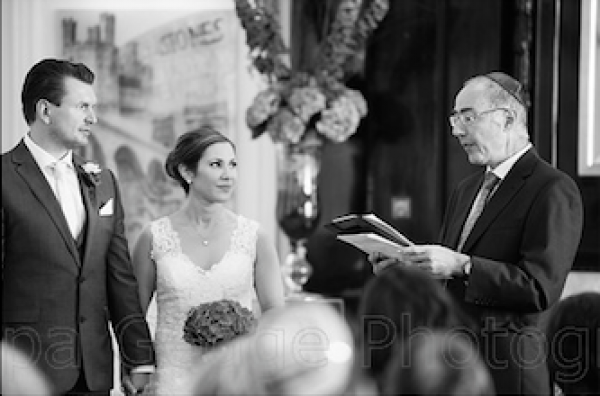
by Michael | Apr 25, 2022 | Blog
Just as there are many types of weddings, a mixed-faith service can vary ceremony by ceremony. Not just because the couples are different. Or because the religions highlighted might be different.
As with any celebrant-led ceremony, you can tailor the components to fit in with what you believe and want to include.
The ceremony can be 100% religious (or almost). I have conducted a couple of mixed-faith ceremonies, which were, to all intents and purposes, pretty much traditional Jewish wedding services (albeit with less Hebrew). In both cases, there was a Christian reading and/or prayer included. That’s how the couples wanted to play it out, and it worked.
In most cases, the couples want religious elements, despite not being active worshippers. In one case, it was simply to placate parents. Usually, it is because the couple, though not active participants, feel attached to their religion and want to include this as part of their important day.
There’s nothing to stop you mixing religious and pagan elements into one ceremony.
In all cases, the couples need to agree beforehand what they actually want. If they don’t, it’s a recipe for dis-harmony and potentially resentment. Of course, discussing things with the celebrant can clarify how things are going to appear on the day and make it easier to choose.
It may be that the couples want to clear things with their parents too. That’s fine, although you might be walking a tightrope here. Naturally, you want to please everybody (especially if your parents are helping to bankroll the event), but it is ultimately your day. You don’t want to get railroaded into doing what doesn’t sit comfortably with you.
One thing to bear in mind is how “heavy” you want the ceremony to be. For example, when I do a Jewish (or part-Jewish) wedding, I weigh up how much Hebrew should go in. You will need to decide on how many, and which, prayers you include. What sort of rituals will you put in? How about a few spiritual readings? Do you want a balance of religions, or is it OK, if things are a bit lop-sided?
Again, discussing this with your celebrant should illuminate things better for you. You could do worse than to have a word with me!
photo: Philippa Gedge
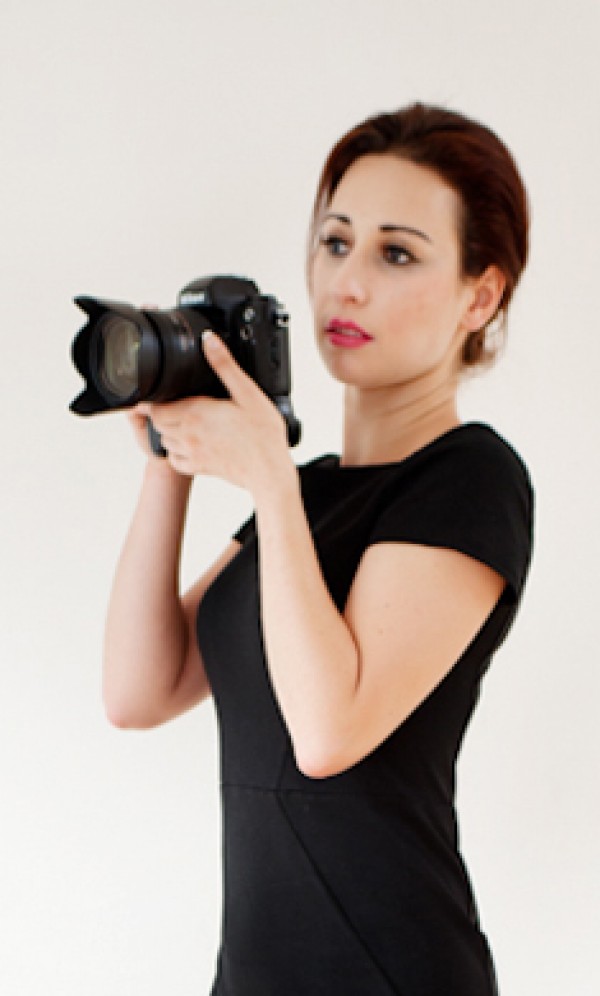
by Michael | Apr 4, 2022 | Blog
My last blog was about stress at weddings. It reminded me of a piece I wrote about a year ago concerning nightmare scenarios.
The scenarios were:
- A fire
- The groom forgot the ring
- The bride’s car got lost
- A staircase collapsed
- A photographer fell over backwards
- The Best Man arrived two hours late because of a job interview
(Talk about stress!)
I was asked by several people after publication “what happened next” in each scenario, so I thought I’d put those people out of their misery at last!
Fire
This particular fire broke out in the kitchens; we had to evacuate (luckily, it was a warm, sunny day) and wait an hour or so before we could go into the hall and proceed with the ceremony. Could have been much worse!
Forgotten Ring
Luckily, the groom left the ring in his hotel room, which was close to the wedding venue. He was able to go back for it, and got back even before his bride arrived!
Lost Car
No bride, no car, no phone signal; it didn’t look good – not helped by a friend of the groom suggesting that the bride had stood him up! Luckily, the driver eventually found the venue, and we could start (about 40 minutes late).
Masonry issue
A hotel outer staircase that was used for wedding photographs collapsed the day before our occasion, while being used for a photo-shoot. Nobody was hurt, I believe, but there was no option but to postpone our event.
Plunging Photographer
Large pot plants had been placed in the hall where a wedding was to take place. Our photographer was taken by surprise by the entry of the bride, and was evidently not in prime position. He started taking shots, and walked backwards as he did so. The inevitable happened, and he fell head-over-heels. Luckily, there was no damage to him or to his equipment, but a lot of guests made the best of their opportunity to take photos of that photographer!
Delayed Best Man
All was perfectly poised for an outdoor wedding I was conducting. The venue was lovely, guests were all in good humour, bride and groom in great spirits, and perfect weather. Almost all was in place, but the Best Man was missing.
Eventually, the groom shared that the Best Man, Howard, had attended a job interview (successful!), but this had overrun. Then Howard had got stuck in Friday afternoon traffic on the M25. He didn’t turn up for two hours. By then, some guests were the worse for drink (which you can understand!), but the ceremony went well – except that the weather turned in that time, and we had to contend with a heavy downpour!
I hope there’ll be no more sleepless nights now, dear reader!
I’d like to stress that these were the worst things that have happened in my experience of some 300 ceremonies, of which the vast majority proceeded without a hitch!
Do have a chat, and we’ll see about managing a seamless ceremony for you!
photo: neli-prahova (who would NEVER take a tumble!)





